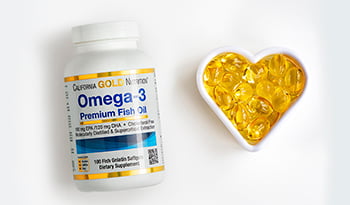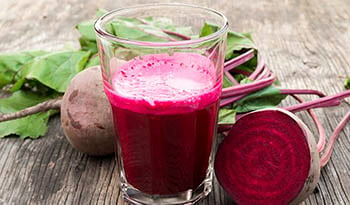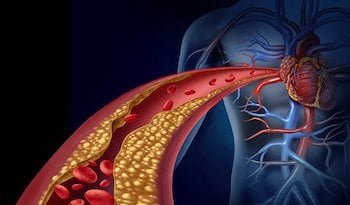CoQ10: Heart Health, Immunity, and Other Health Benefits

Updated April 2022 / Originally posted July 2017
Coenzyme Q10 (CoQ10) is an essential component of mitochondria: the energy-producing unit in every cell in your body. CoQ10 is involved in the manufacture of ATP, which the body uses to make energy. CoQ10’s role is similar to that of a spark plug in a car engine: without that initial spark, the human body cannot function.
CoQ10 can be made within the body, but sometimes our bodies simply don’t make enough. The heart is one of the most metabolically active organs in the body, so a CoQ10 deficiency affects your heart the most, and can lead to serious problems. Deficiency can be the result of a poor diet, genetic or acquired defects that limit CoQ10 synthesis, or increased tissue needs. Heart and vascular diseases, including high cholesterol and high blood pressure, can increase tissue demand for CoQ10. In addition, people older than 50 may need more CoQ10, as levels are known to decline with age.
Are There Food Sources of CoQ10?
Yes, but the typical daily intake of CoQ10 from dietary sources is only about 3 to 5 mg: nowhere near the level required to significantly raise blood and tissue levels. Meat, poultry, and fish provide the majority of dietary CoQ10.
What are the Principal Uses of CoQ10?
CoQ10 supplements are used mostly to treat or prevent cardiovascular diseases such as high cholesterol, high blood pressure, congestive heart failure, cardiomyopathy, mitral valve prolapse, coronary artery bypass surgery and angina. Many scientific studies have validated these uses. In addition, CoQ10 has been shown to be helpful in fighting diabetes, periodontal disease, immune deficiency, cancer, obesity and muscular dystrophy.
Be aware that it can take eight or more weeks of daily supplementation with CoQ10 before you’ll see a noticeable improvement in any of these diseases.
How Does CoQ10 Improve Heart Function?
CoQ10 boosts energy production in the heart muscle and acts as an antioxidant. CoQ10 deficiency is common in patients with heart disease: Biopsy results from the heart tissue of patients with various cardiovascular diseases showed a CoQ10 deficiency in 50 to 75 percent of all cases. Correction of a CoQ10 deficiency can often produce dramatic clinical results in patients with any kind of heart disease.
Can CoQ10 Lower Blood Pressure?
Research shows that 39 percent of patients with high blood pressure have a CoQ10 deficiency. In several studies, CoQ10 supplementation has been shown to lower blood pressure in patients with hypertension, although the effect is usually not seen until after eight to 10 weeks. Typical reductions in both systolic and diastolic blood pressure are in the 10 percent range.
How Does CoQ10 Boost the Immune System?
Tissues and cells involved with immune function are highly energy-dependent and require an adequate supply of CoQ10 for optimal function. Studies have documented the immune-enhancing effect of CoQ10. Also, CoQ10 should definitely be used by cancer patients after taking any chemotherapy drug that is associated with heart toxicity, such as adriamycin and athralines.
Can CoQ10 Promote Weight Loss?
Since CoQ10 is an essential cofactor for energy production, it is possible that CoQ10 deficiency is a factor in some cases of obesity. One study of obese people found that 52 percent had low CoQ10 levels. When they were given 100 mg per day of CoQ10, they had significant weight loss.
What Is the Best Form of CoQ10?
Most commercially CoQ10 is primarily produced via a yeast fermentation process. CoQ10 is available in two interchangeable chemical forms in the body – ubiquinone and ubiquinol. These two forms are also available as dietary supplements, but once absorbed the two forms are interchangeable. About 95% of the CoQ10 in the body is in the ubiquinol form. This form is the most active form. However, taking ubiquinone usually results in an easy conversion to ubiquinol in the body. So, either form ultimately raises ubiquinol levels in the blood. If taking ubiquinone, take it with food (especially with oils) to enhance absorption.
How Much CoQ10 Should I Take?
For people who are taking a statin drug or those seeking general antioxidant support, the dosage for CoQ10 is generally100 mg for either form. For those with increased need due to stress of the heart, aging, obesity, or diabetes; the dosage is 150 to 200 mg for ubiquinone and 100 to 150 mg for ubiquinol. Be sure to take CoQ10 with food for maximum absorption.
Is CoQ10 Safe?
Coenzyme Q10 is very safe: no serious adverse effects have ever been reported, even with long-term use. Because safety during pregnancy and lactation has not been proven, CoQ10 should not be used during these times unless the potential clinical benefit (as determined by a physician) outweighs the risks.
Does CoQ10 Interact With any Drugs?
There are no known adverse interactions between CoQ10 and any drug or nutrient. However, many drugs can adversely affect CoQ10 levels, and CoQ10 may be able to reduce the side effects of some drugs. In addition to adriamycin, CoQ10 supplementation has been shown to counteract some of the adverse effects of certain cholesterol-lowering, beta-blocker and psychotropic drugs. Lovastatin (Mevacor), pravastatin (Pravachol), atorvastatin (Lipitor) and simvastatin (Zocor) are used to lower blood cholesterol levels by inhibiting the enzyme (HMG CoA reductase) required to make cholesterol in the liver. Unfortunately, these drugs also block the manufacture of other substances necessary for body functions, including CoQ10. Supplementing with CoQ10 (50 mg per day) is necessary to prevent its depletion in body tissues while on these drugs.
References:
- Schandalik R, Gatti G, and Perucca E: Pharmacokinetics of silybin in bile following administration of silipide and silymarin in cholecystectomy patients. Arzneim Forsch 1992;42(7):964-8.
- Barzaghi N, et al.: Pharmacokinetic studies on IdB 1016, a silybin-phosphatidylcholine complex, in healthy human subjects. Eur J Drug Metab Pharmacokinet 1990;15(4):333-8.
- Mascarella S, et al.:Therapeutic and antilipoperoxidant effects of silybin-phosphatidylcholine complex in chronic liver disease: Preliminary results. Curr Ther Res 1993;53(1):98-102.
- Vailati A, et al.: Randomized open study of the dose-effect relationship of a short course of IdB 1016 in patients with viral or alcoholic hepatitis. Fitoterapia 1993;44(3):219-28.
- Marena C and Lampertico P: Preliminary clinical development of Silipide: A new complex of silybin in toxic liver disorders. Planta Medical 1991;57(S2):A124-5.
- Facino RM, et al.: Free radicals scavenging action and anti-enzyme activities of procyanidines from Vitis vinifera. A mechanism for their capillary protective action. Arzneim Forsch 1994;44:592-601.
- Schwitters B and Masquelier J: OPC in Practice: Biflavanols and Their Application. Alfa Omega, Rome, Italy, 1993.
- Corbe C, Boisin JP and Siou A: Light vision and chorioretinal circulation. Study of the effect of procyanidolic oligomers (Endotelon). J Fr Ophtalmol 1988;11:453-60.
- Boissin JP, Corbe C and Siou A: Chorioretinal circulation and dazzling: use of procyanidol oligomers. Bull Soc Ophtalmol Fr 1988;88:173-4,177-9.
- Weihmayr T and Ernst E.Therapeutic effectiveness of Crataegus. Fortschr Med 1996;114:27–9.
- Schmidt U, et al.: Efficacy of the Hawthorn (Crataegus) preparation LI 132 in 78 patients with chronic congestive heart failure defined as NYHA functional class II. Phytomed 1994;1(1):17–24.
- Schussler M, Holzl J, Fricke U: Myocardial effects of flavonoids from Crataegus species. Arzneim Forsch 1995;45:842-5.
- Hertog MG, et al: Dietary antioxidant flavonoids and risk of coronary heart disease: the Zutphen Elderly Study. Lancet 1993;342:1007-11.
- Wegrowski J, Robert Am and Moczar M:The effect of procyanidolic oligomers on the composition of normal and hypercholesterolemic rabbit aortas. Biochem Pharmacol 1984;33:3491-7.
- Wilkinson EG, et al.: Bioenergetics in clinical medicine. VI. Adjunctive treatment of periodontal disease with coenzyme Q10. Res Commun Chem Pathol Pharmacol 1976;14:715-9.
- Hanioka T, et al.: Effect of topical application of coenzyme Q10 on adult periodontitis. Mol Aspects Med 1994;15(Suppl):S241-8.
- Folkers K, et al.: Increase in levels of IgG in serum of patients treated with coenzyme Q10. Res Comm Pathol Pharmacol 1982;38:335-8.
- Lockwood K, Moesgaard S, Folkers K. Partial and complete regression of breast cancer in patients in relation to dosage of coenzyme Q10. Biochem Biophys Res Comm 1994;199:1504-8.
- Lockwood K, Moesgaard S,Yamamoto T, Folkers K. Progress on therapy of breast cancer with vitamin Q10 and the regression of metastases. Biochem Biophys Res Comm 1995;212:172-7.
- Iarussi D, et al.: Protective effect of coenzyme Q10 on anthracyclines cardiotoxicity: control study in children with acute lymphoblastic leukemia and non-Hodgkin lymphoma. Mol Aspects Med 1994;15(Suppl.):s207-12.
- van Gaal L, de Leeuw ID, Vadhanavikit S, and Folkers K: Exploratory study of coenzyme Q10 in obesity. In: Folkers K,Yamamura Y, eds: Biomedical and Clinical Aspects of Coenzyme Q, Vol 4. Elsevier Science Publ, Amsterdam,1984. pp369-73.
- Weiss M, et al.: Bioavailability of four oral coenzyme Q10 formulations in healthy volunteers. Molec Aspects Med 1994;15:273-80.
- Chopra RK, et al.: Relative bioavailability of coenzyme Q10 formulations in human subjects. Internat J Vit Nutr Res 1998;68:109-13.
- Malqvist ML, et al.: Bioavailability of two different formulations of coenzyme Q10 in healthy subjects. Asia Pacific J Clin Nutr 1998;7:37-40.
- Zhang Y,Turunen M, and Appelkvist EL: Restricted uptake of dietary coenzyme Q is in contrast to the unrestricted uptake of alpha-tocopherol into rat organs and cells. J Nutr 1996;126:2089-97.
- Ibrahim WH, et al.: Dietary coenzyme Q10 and vitamin E alter the status of these compounds in rat tissues and mitochondria. J Nutr 2000;130:2343-8.
- Kaikkonen J, et al.: Antioxidative efficacy of parallel and combinedsupplementation with coenzyme Q10 and d-alpha-tocopherol in mild lyhypercholesterolemic subjects: a randomized placebo-controlled clinicalstudy Free Radic Res 2000;33:329-40.
- Bargossi AM, et al.: Exogenous CoQ10 supplementation prevents plasma ubiquinone reduction induced by HMG-CoA reductase inhibitors. Mol Aspects Med 1994;15(Suppl.):s187-93.
DISCLAIMER:This Wellness Hub does not intend to provide diagnosis...
















































































 Table of Contents
Table of Contents














